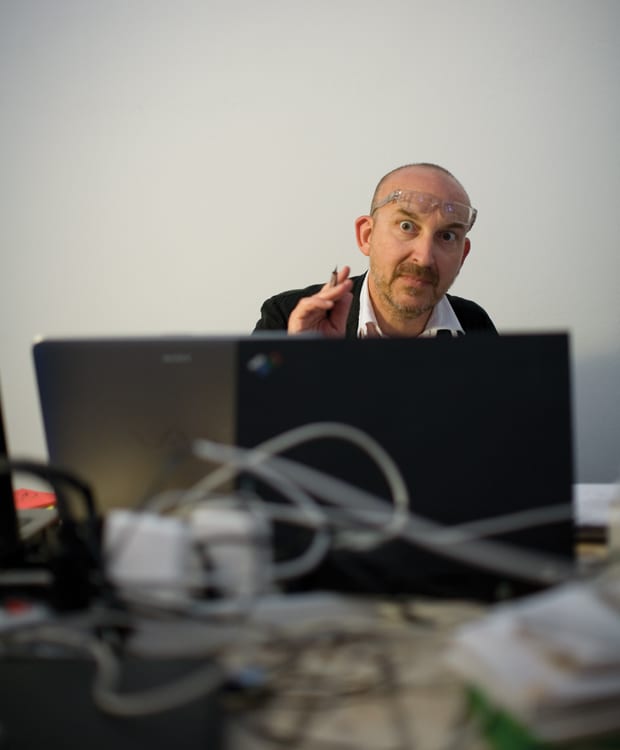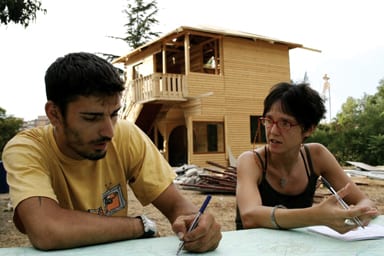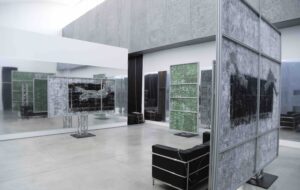
words Beatrice Galilee
Migrant communities are the main focus for Stalker, a loose collective of Italian academics, artists and architects. This group rarely builds; instead, it attacks prejudices by analysing and working with marginal groups. Also known as the Osservatorio Nomade (Nomadic Observatory), it is one of the more established members of the generation captured on these pages. Its strategy of relieving social tensions in deprived areas by talking, writing and creating art rather than applying to build big community centres was deemed to be radical in the early 1990s and remains influential.
The collective began working together as students, looking at urbanism and the social fabric of cities at a time when young architects were still being taught to be autocratic designers. Informed by the Situationist movement of the 1960s, the students took off on a meandering “dérive” around Rome looking at broken parts of the city and thinking about ways to solve them.
Infringed communities are of particular interest to Stalker. Among its consciousness-raising projects last year was a project to work with the Roma camps in southern Italy. Peter Lang, an academic at the University of Texas who began working with Stalker in 1995, was interested in highlighting the Roma’s eco-friendly lifestyle. “I think it’s quite important to learn from these communities since their ways of life are more in tune with the recycling, waste-less, low-cost lifestyle that the rest of the world is aiming towards.”
Despite good intentions, taking on such politically sensitive issues can result in unintended outcomes. After a lot of successful funding and even a permanent finished house for the Roma community, the Italian government hijacked Stalker’s research and twisted it to promote an agenda resulting in further marginalisation of the group. “It was the time when the right-wing government was fingerprinting these people with the supposed intention to help them with schools,” says Lang. “But we saw that at the same time electrical generators were being removed from their camps.”
Despite being mostly an academic and long-term collaborator in Stalker, Lang doesn’t have a clear idea for the future of his type of practice. “It’s important now, for sure,” he says. “But will it last? I don’t know.”
www.stalkerlab.it
www.schoolofmissingstudies.net




















